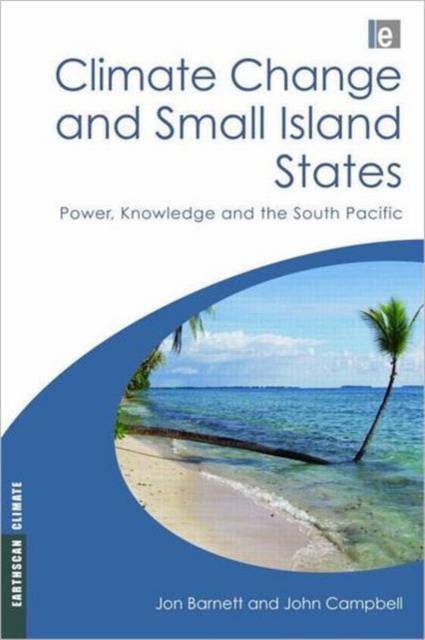
Bedankt voor het vertrouwen het afgelopen jaar! Om jou te bedanken bieden we GRATIS verzending (in België) aan op alles gedurende de hele maand januari.
- Afhalen na 1 uur in een winkel met voorraad
- In januari gratis thuislevering in België
- Ruim aanbod met 7 miljoen producten
Bedankt voor het vertrouwen het afgelopen jaar! Om jou te bedanken bieden we GRATIS verzending (in België) aan op alles gedurende de hele maand januari.
- Afhalen na 1 uur in een winkel met voorraad
- In januari gratis thuislevering in België
- Ruim aanbod met 7 miljoen producten
Zoeken
Climate Change and Small Island States
Power, Knowledge and the South Pacific
John Campbell, Jon Barnett
€ 290,45
+ 580 punten
Uitvoering
Omschrijving
Small Island Developing States are often depicted as being among the most vulnerable of all places to the effects of climate change, and they are a cause celebre of many involved in climate science, politics and the media. Yet while small island developing states are much talked about, the production of both scientific knowledge and policies to protect the rights of these nations and their people has been remarkably slow. This book is the first to apply a critical approach to climate change science and policy processes in the South Pacific region. It shows how groups within politically and scientifically powerful countries appropriate the issue of island vulnerability in ways that do not do justice to the lives of island people. It argues that the ways in which islands and their inhabitants are represented in climate science and politics seldom leads to meaningful responses to assist them to adapt to climate change. Throughout, the authors focus on the hitherto largely ignored social impacts of climate change, and demonstrate that adaptation and mitigation policies cannot be effective without understanding the social systems and values of island societies.
Specificaties
Betrokkenen
- Auteur(s):
- Uitgeverij:
Inhoud
- Aantal bladzijden:
- 232
- Taal:
- Engels
- Reeks:
Eigenschappen
- Productcode (EAN):
- 9781844074945
- Verschijningsdatum:
- 1/06/2010
- Uitvoering:
- Hardcover
- Formaat:
- Ongenaaid / garenloos gebonden
- Afmetingen:
- 160 mm x 234 mm
- Gewicht:
- 498 g

Alleen bij Standaard Boekhandel
+ 580 punten op je klantenkaart van Standaard Boekhandel
Beoordelingen
We publiceren alleen reviews die voldoen aan de voorwaarden voor reviews. Bekijk onze voorwaarden voor reviews.









